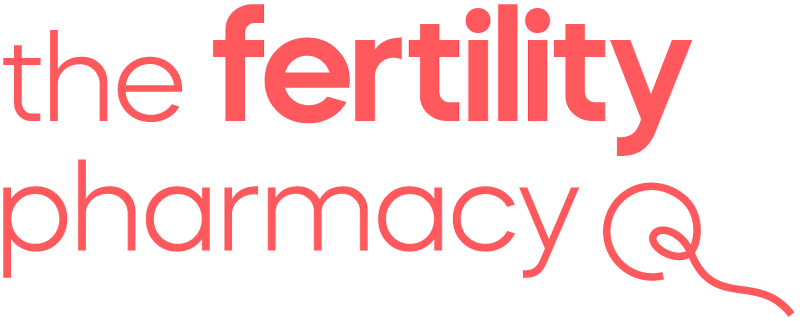Fertility treatment abroad: choosing the right European clinic for you
For some of our clients, the suggestion that they may want to consider treatment abroad often raises an eyebrow with concerns over perceived additional hassles, language barriers and a general feeling of venturing into ‘unknown’ territory.
Such concerns are understandable, yet it’s a fact that more and more British patients are opting to pack a bag and seek fertility treatment in one of Europe’s many clinics.
One of the driving factors behind this trend is undoubtedly the significant reduction in NHS-funded fertility treatment, namely in England, which is hiking up demand for private practitioners.
Whilst 60% of treatment cycles in Scotland and 50% in Northern Ireland are funded, only 39% and 35% are paid for by the NHS in Wales and England, respectively.
And with the average cost of a round in the UK coming in at £5,000 it’s no surprise that people are looking for cheaper options in a quest to fulfil their dreams of having a baby.
Let’s take a look at some of the many reasons as to why we think it’s something that you should consider:
1 – It can be significantly cheaper; the success rates are very impressive success rates and the standards of care are first rate
It’s impossible to get away from the fact that cost is an overriding factor in deciding where patients have treatment but fortunately, that old saying ‘you get what you pay for’ does absolutely not ring true when it comes to IVF treatment in European clinics.
With one round of IVF in the UK coming in at anything up to £5,000 (not factoring in additional costs such as medication) treatment in countries such as Greece, Cyprus, Prague and Spain can be up to 40% or even 50% cheaper, than in the UK – that’s INCLUDING flights, accommodation and your protocol!
For some patients, particularly those who have a poorer prognosis and may need two, three or four plus rounds, such a price difference could mean the difference between having a baby and not having a baby.
As with any clinic, British or European, of course you need to do your homework. But the EU has done some very solid legal work in regulating European clinics and assisted reproduction is now controlled by legislation by in almost all EU countries.
And bodies such as the European Society of Human Reproduction and Embryology, like the HFEA in the UK, regularly publish guidelines on industry best practice. It also acts as a legal arbitrator of practices across the EU and clarifies the differing laws on IVF in each member state (more on that later). Many clinics also have International Organisation for Standardisation (ISO) accreditation which you can take as further assurance that it meets necessary and recognised standards.
Compared to the rest of the world, Europe leads the way in assisted reproduction services. Figures from the European Society of Human Reproduction and Embryology show how flourishing European IVF is. Not including Asia, 71 per cent of worldwide fertility cycles were carried out in mainland Europe in 2009 – the last time the research was done.
Here are some useful points to consider when researching your European clinic:
- Who are their lead consultants and do staff communicate in a good standard of English? Will your medical notes be written up in English?
- What are the clinic’s live birth rates (that’s people who get to take a baby home, not just those who they statistically get pregnant) for people in your age bracket and with your sort of diagnosis (low AMH, genetic conditions, poor sperm quality etc)?
- What are their areas of specialism (pregnancy over 40, same sex couples, egg donation etc)?
- How often will you need to travel to the clinic throughout your treatment plan
- How and when will your clinic want to be paid and in which currency?
- How many other British patients do they treat every year?
- Will you be assigned a designated international coordinator who will be able to assist with logistics?
- Can you access the fertility treatment you need in the country of your choice? It might seem a simple concept but some countries will not allow treatment for ‘same-sex’ couples to take place or for surrogacy arrangements. Check that the clinic you are visiting is working within the legal framework of that country.
- Can you buy your fertility drugs back in the UK? Generally, it’s a yes, and it’s something that The Fertility Pharmacy works with a lot of clients on. Before you start to think about treatment abroad come and talk to us about how we can provide you with your protocol as part of overseas treatment.
2 – Taking a ‘holiday’ whilst you pursue active treatment could be just the ticket
If you’ve already been through IVF or know people who have, you’ll be all too aware that many patients struggle with what to say to their bosses and colleagues. Feigning multiple doctors’ appointments whilst having to attend daily scans and clinic visits can actually add a whole heap of pressure to the process. And with varying fertility policies across many British workplaces, employees can feel overwhelmed as to what or how much to disclose.
We are hearing more and more that our clients actually found it hugely beneficial to their overall wellbeing to step on a plane as part of their fertility treatment. Clinics tend to be in larger European cities, which are known for their beauty, sunshine and culture. So, whilst you might not technically be there for a holiday, it certainly won’t do you any harm to relax and unwind in between clinic visits safe in the knowledge that you’re not going to be missed back in the office. After all, we all know how important it is not to get overly stressed during stims/retrieval/implantation.
Many people ask us how long they’re likely to be away for each time – again this depends on the treatment you are having. Upfront consultations can be done via Skype or Zoom but active treatment can take anything from three to fourteen days.
As with any IVF programme, there are things that need to be organised before your European treatment can begin – such as blood work, tests, flights and accommodation – but The Fertility Pharmacy is fully geared up to help you navigate this process before, during and after your overseas visit.
3 – Anonymity laws around donors are much stricter
In most (not all) European countries, there are strict anonymity laws around donor eggs, sperm and embryos, unlike here in the UK where donor-conceived children can, if they wish, identify and meet their donor once they reach 18. This can be the clincher for many people. And whilst it’s a personal and controversial subject, lots of patients are adamant that they don’t want any prospective child to be able to trace ‘genetic’ parents later in life. If this is important to you, then European laws could be very appealing.
4 – Waiting lists are shorter or non-existent
If you know that some element of donor egg, sperm or embryo is going to be a part of your treatment, you’ll be pleased to know that on the whole, European clinics don’t have the frustrating and unbearably long waiting lists that you’ll find in the UK. And what’s more you can usually start treatment as quickly as your next cycle.
Spain for example, which is widely regarded as Europe’s egg donation hot spot accounting for around a third of all IVF cycles, has a very active donor recruitment programme that targets young women aged between 18 and 25 years old who can earn around €1,000 per donor cycle. If you’re a same-sex couple, going it alone, over 40 or have a BMI over 35 this can be a huge plus.
So, if you’ve recently been left reeling by the costs quoted to you by a British clinic, please don’t despair. Take some time to consider that whilst treatment in the UK can be excruciatingly expensive, there are a myriad of more viable options out there for you. It might just be time to dig out that passport!

